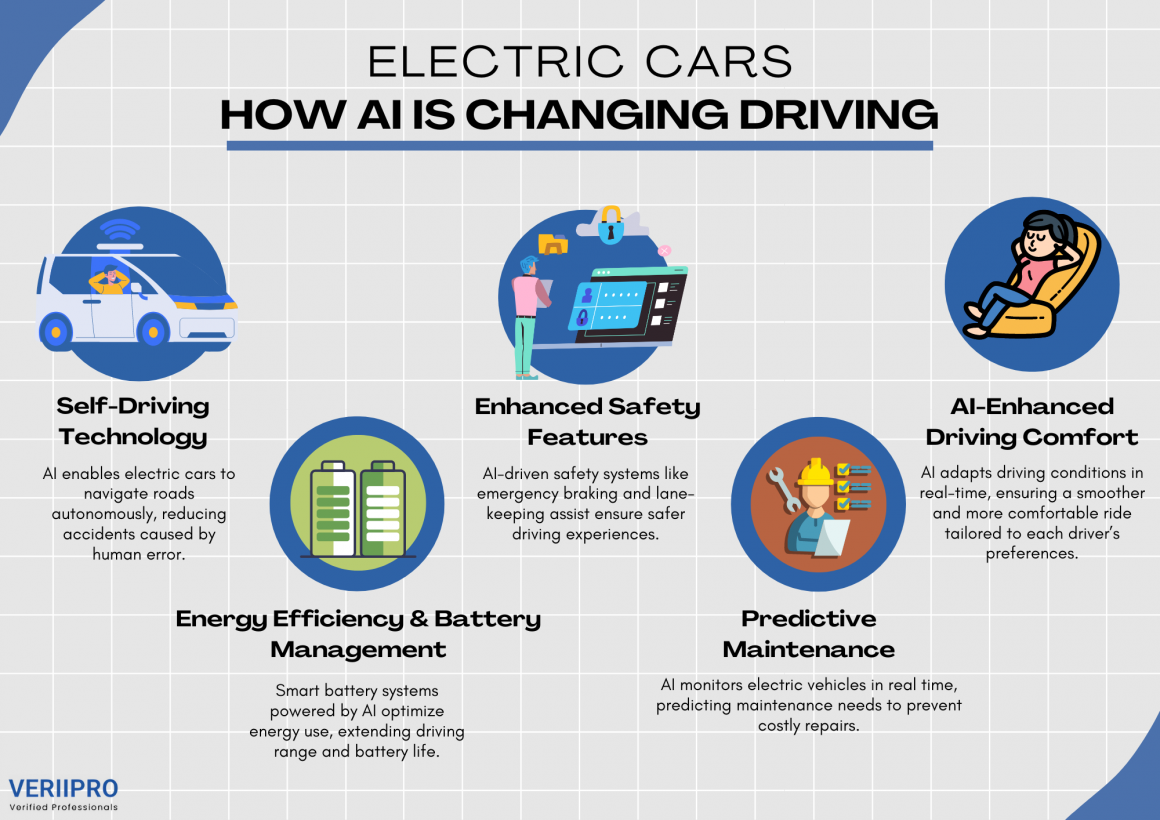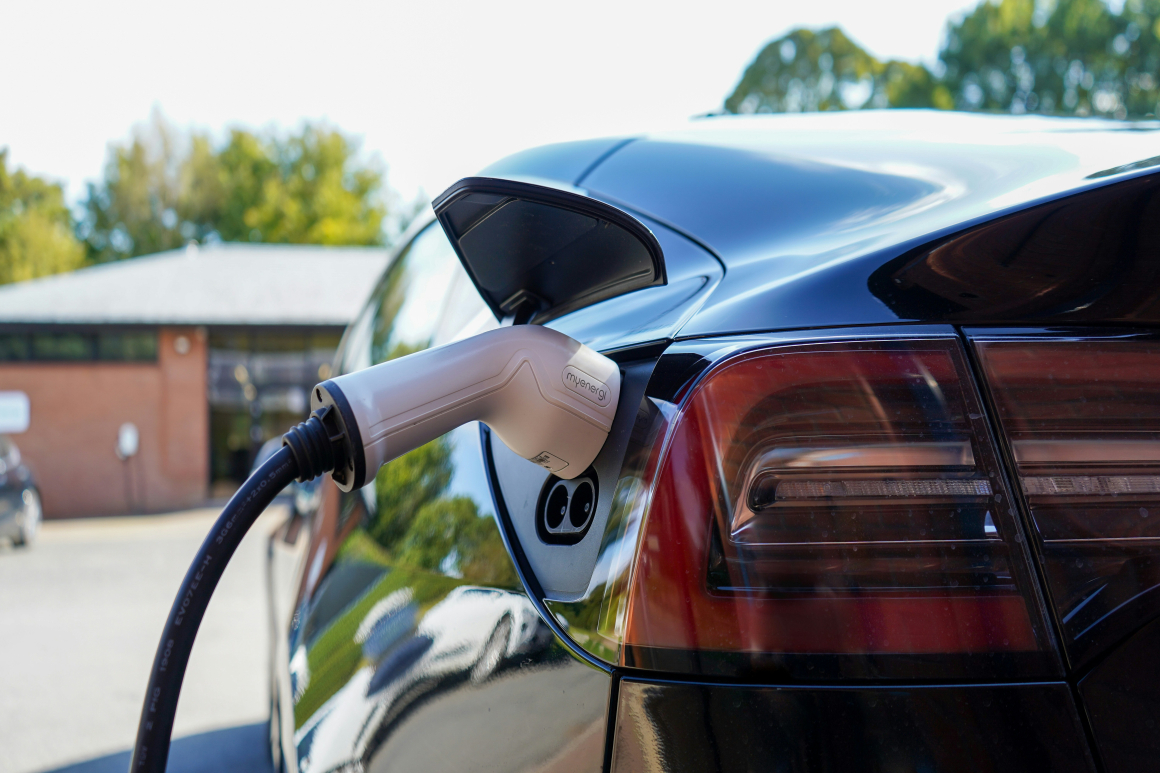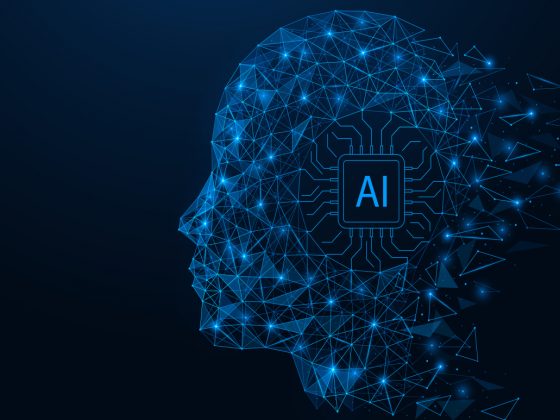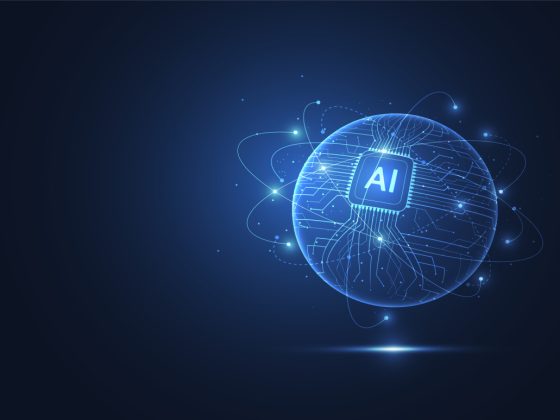Electric Cars: How AI is Changing Driving
The rise of electric cars is not just about reducing emissions or moving away from traditional fuel. Artificial Intelligence (AI) is rapidly becoming a core component in transforming the driving experience itself. With AI advancements, electric vehicles (EVs) are becoming smarter, safer, and more energy-efficient. Here’s how AI is shaping the future of electric driving.

1. Autonomous Driving Systems
AI is leading the charge in autonomous driving technology. Many electric cars now come equipped with self-driving features, thanks to AI’s ability to process real-time data from sensors and cameras. These systems help cars detect obstacles, read traffic signs, and make real-time decisions on the road. Companies like Tesla are pioneering the development of autonomous vehicles, aiming to make fully self-driving cars a reality.
The potential impact is significant, with AI reducing human error, which currently causes around 94% of road accidents. AI-powered electric cars can lead to safer roads and fewer traffic-related fatalities.
2. Smart Battery Management
AI plays a crucial role in enhancing battery performance and longevity in electric vehicles. AI-based systems monitor battery usage patterns, optimize charging processes, and even predict when maintenance is required. Companies are developing smart battery management system that use AI algorithms to help maximize the energy efficiency of EV batteries.
These AI tools ensure drivers get the most out of each charge and extend the overall lifespan of their vehicle’s battery, reducing long-term costs and environmental impact.
3. AI-Enhanced Safety Features
AI is revolutionizing vehicle safety. Electric cars are now equipped with advanced driver-assistance systems (ADAS) that use AI to monitor the environment around the car and assist drivers in avoiding potential hazards. Features such as automatic emergency braking, lane-keeping assist, and adaptive cruise control rely on AI to interpret data from sensors and cameras in real-time.
Tesla’s Autopilot system, for example, helps drivers stay safe on the road by automatically adjusting speed, steering, and braking based on road conditions. AI’s role in improving these safety systems is only expected to grow as more electric vehicles adopt similar technology.
4. Predictive Maintenance
Another key benefit of AI in electric vehicles is predictive maintenance. Traditional car maintenance often relies on fixed schedules, but AI changes that. AI algorithms analyze real-time data from various components of the car to predict when a part may fail or when maintenance is needed. Predictive maintenance can save drivers time and money by preventing unexpected breakdowns.
AI’s ability to monitor the health of a vehicle and notify the driver when service is required helps keep electric cars running more efficiently, reducing the risk of costly repairs.
5. Personalized Driving Experience
AI is making driving more comfortable and personalized than ever before. Electric cars now have AI systems that learn drivers’ preferences, such as seat positioning, climate control, and preferred routes. AI algorithms can adjust these settings automatically, ensuring an optimized driving experience tailored to each individual.
Beyond comfort, AI can adapt to driving conditions. For example, some electric vehicles can change driving modes based on weather conditions or the type of terrain, providing a smoother and safer ride.
Conclusion: AI is Driving the Future Forward
As electric vehicles continue to evolve, AI’s role in improving safety, efficiency, and personalization is becoming more prominent. AI is reshaping how we think about driving, offering safer, smarter, and more eco-friendly transportation options. From self-driving systems to predictive maintenance, AI is revolutionizing the electric car industry, making the future of driving look brighter than ever.
Looking for opportunities in the tech and automotive fields? VeriiPro is here to help!









